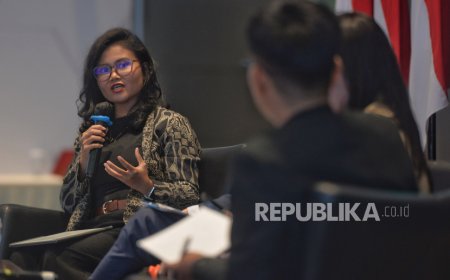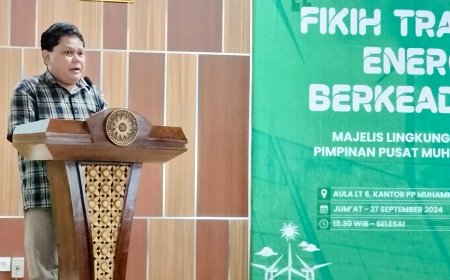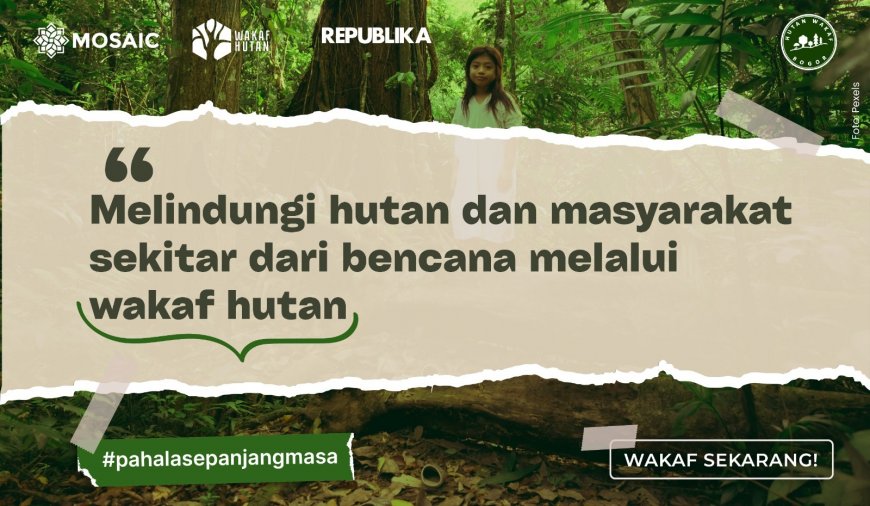Minister of Religious Affair to follow-up the 2024 Istiqlal Declaration
Istiqlal Declaration 2024 witnessed by Istiqlal High Priest and Pope Francis was triggered by the crisis of dehumanization and climate change.
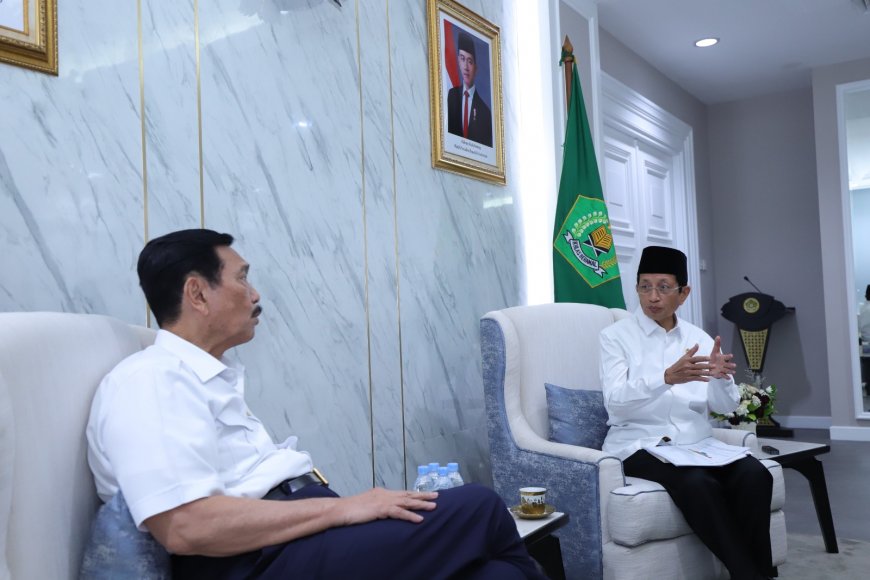
MOSAIC-INDONESIA.COM, JAKARTA — Minister of Religious Affairs Prof. KH Nasaruddin Umar received a visit from Chairman of the National Economic Council Luhut Binsar Panjaitan and Special Envoy of the President Maria Elka Pangestu at the Ministry of Religious Affairs Office, Jakarta, Tuesday (29/10/2024).
In that meeting, Mr Nasaraddin accompanied by Director General of Guidance of Islamic Society Kamaruddin Amin, Director-General of Guidance of Catholic Society Suparman, and Director General of Islamic Education Abu Rokhmad.
In addition to discussing the role of religion in the sustainability of nature and the environment, they reviewed the follow-up of to the 2024 Istiqlal Declaration made during Pope Francis's visit to Indonesia in September 2024. “His (Luhut Binsar) here to talk about the follow-up to the signing of the declaration between Pope Francis and the High Imam of the Istiqlal Mosque, which turned out to gain international attention,” said Nasaruddin, who also serves as Istiqlal High Imam in a written statement.
The 2024 Istiqlal Declaration was triggered by two crises that the global community has faced in recent decades, namely dehumanization and climate change. Nasaruddin hopes that the declaration can be the entrance to a big idea in an international event that will be held in Bali in the near future.
“God willing in the near future we will draft the proposal, it is hoped that the President will open the event. We commissioned Mr. Director General Bimas Islam and Director General Bimas Katolik to compose the series of events,” he said. “Paus will also join zooming in Bali and we hope that the leaders of other countries will also enliven the declaration later in Bali,” he added.
He hopes that the event will also involve many parties, such as DPR, Non-Government Organizations (NGOs), as well as religious leaders. According to Menag this becomes a very important thing, because all religions basically teach how to take care of nature and the environment.“Imagine if all of this is involved and international relations to save nature, then we hope a lot that this damage to nature can be prevented,”he said.“Well, we will start in Indonesia and we hope that later it will be supported by the international world."
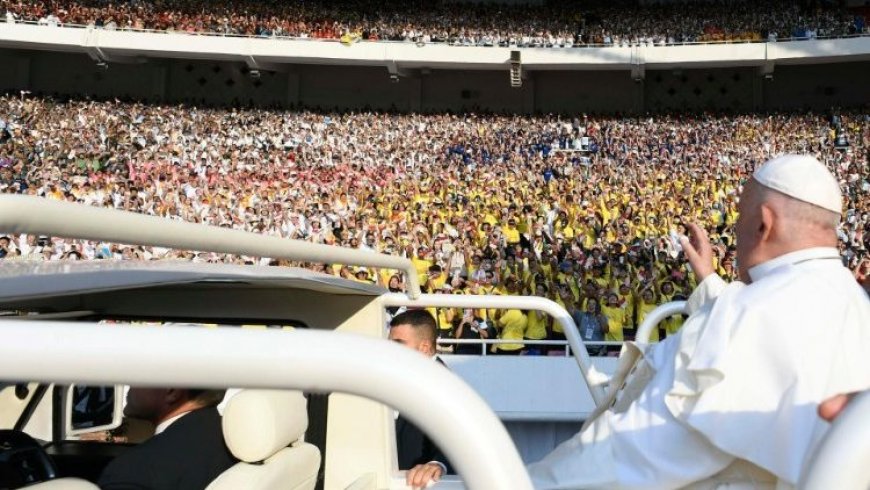
2024 Istiqlal Declaration
On his apostolic visit to Indonesia on 3-6 September 2024, Pope Francis at the Istiqlal Mosque, highlighted how Indonesia is the country with the largest gold mine in the world. The Argentinian pope delivered his eulogy in front of various state officials and religious figures present at the Istiqlal Mosque. “Indonesia is a great country, a mosaic of cultures, peoples, customs, very rich diversity, which is reflected in the diversity of ecosystems and the surrounding environment,” the Pope said.
“If it is true that you are the hosts of the largest gold mine in the world, know that the most precious treasure is the will that differences do not become a reason for conflict, but to be harmonized in harmony and mutual respect,” he added.
Not only that, the Pope witnessed the Istiqlal 2024 Declaration on Establishing the Concord of Peoples for Humanity. The declaration was read by figures from Indonesia's six officially recognized religions. The focus of the declaration is on two serious crises: dehumanization and climate change.
The declaration reveals that the global phenomenon of dehumanization is characterized primarily by widespread violence and conflict, often resulting in an alarming number of casualties.
Next point, highlighting man's exploitation of creation. Earth as a shared home is judged to have contributed to climate change that has caused a range of destructive consequences such as natural disasters, global warming, and unpredictable weather patterns.
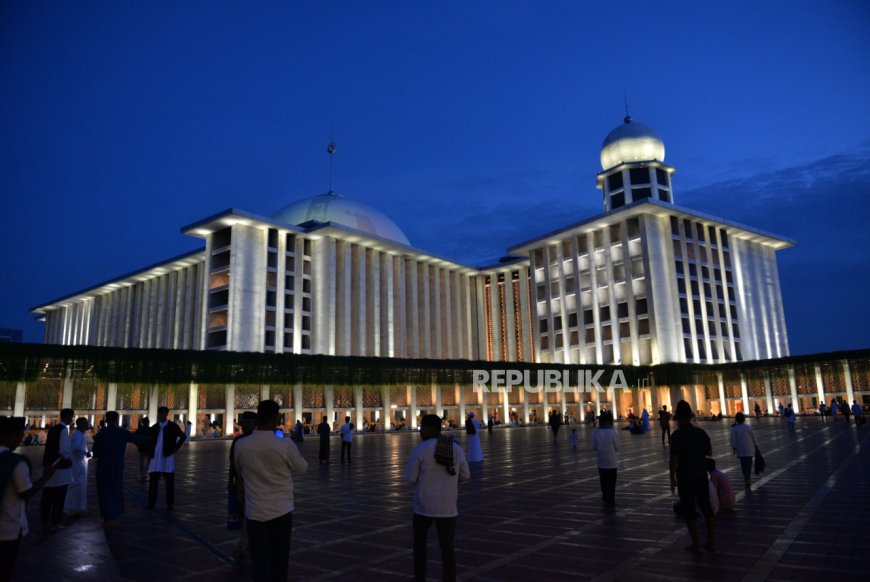
This ongoing environmental crisis is also considered to have been an obstacle to harmonious coexistence among communities. To that end, the religious leaders present gave the four appeals listed in the declaration.
First, the values espoused by the traditions of our religions must be promoted effectively to defeat the culture of violence and indifference that exists in our world.
In truth, religious values should be directed towards fostering a culture of respect, dignity, martial, reconciliation, and fraternal solidarity in order to overcome dehumanization and environmental enterprise.
Two, religious leaders in particular, inspired by their respective narratives and spiritual traditions, should work together in responding to these crises above identifying their causes, and taking appropriate action.
Third, since there is a single human family throughout the world, interfaith dialogue must be recognized as an effective means of resolving local, regional, and international conflicts, especially those triggered by the abuse of religion.
Moreover, our religious beliefs and rituals have a special capacity to touch the human heart thereby fostering a deeper respect for human dignity.
Four, recognize that a healthy, peaceful and harmonious living environment is essential to being a true servant of God and the keeper of creation.

